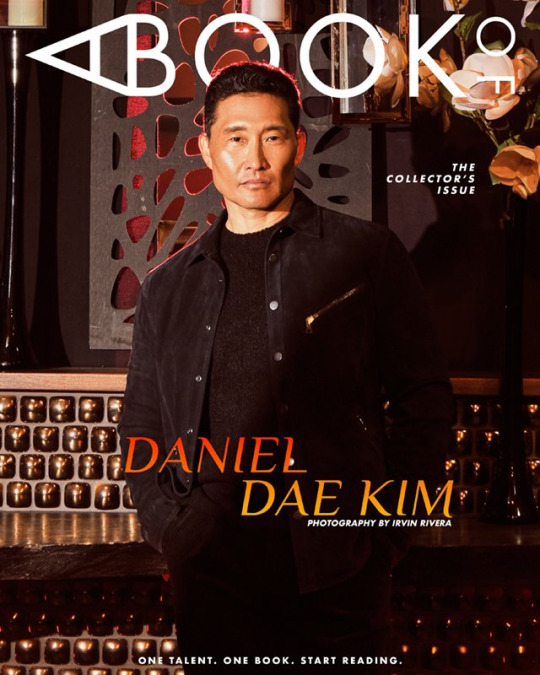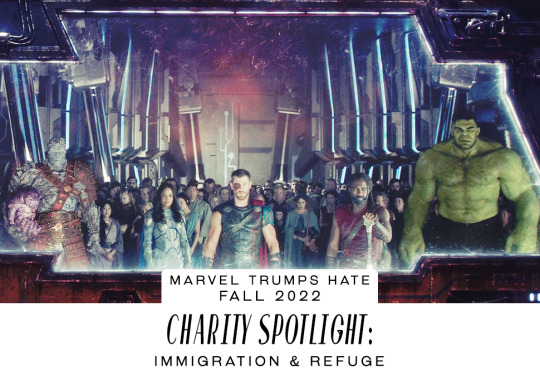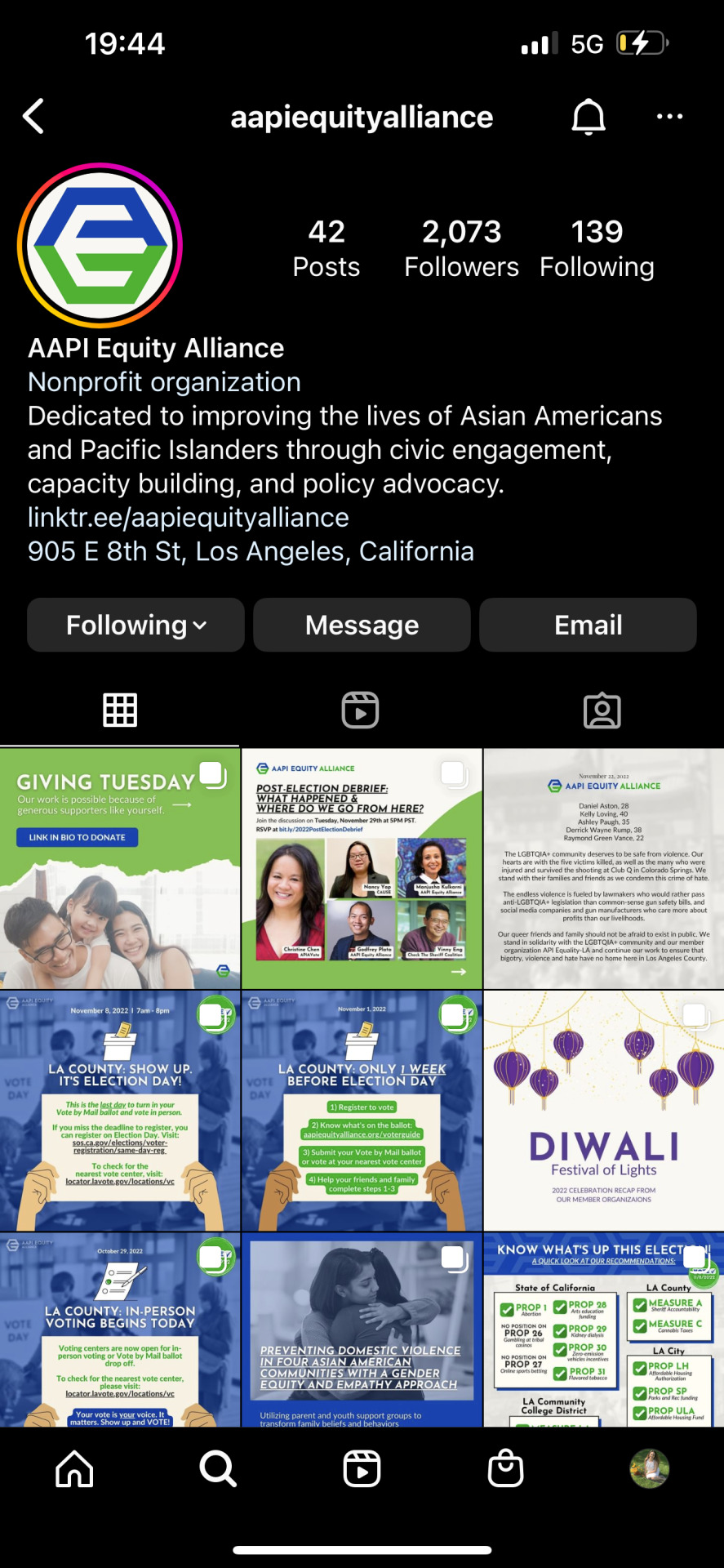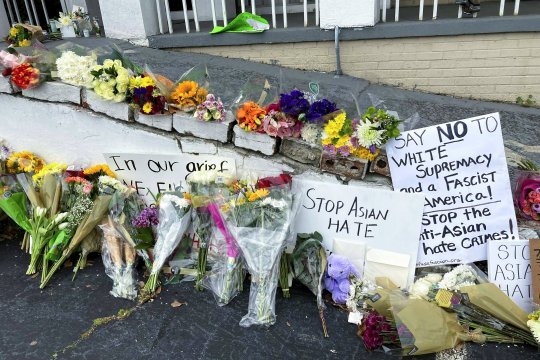#advocacy for AAPI community
Text
youtube
#youtube#news#Asian Pacific American Institute for Congressional Studies#advocacy for AAPI community#APAICS Summit#Kamala Harris#Asian American and Pacific Islander community#Asian Americans and Pacific Islanders#minority representation#Vice President Kamala Harris#diversity in politics#Vice President Harris#Asian American issues#Vice President of the United States#importance of diversity#Asian American history#Asian American representation#diversity and inclusion#AAPI#Q&A
0 notes
Link
Since its founding in 2011, Artists on the Lam has been dedicated to championing local artists while channeling global perspectives (our motto!), making art accessible, bringing people together, breaking barriers, building community, inspiring people to see the world anew, and demonstrating that art is for everyone—all to acclaim.
Hailed by the press and the public as an “art wave-maker,” “a global arts mover and shaker,” “a pioneer of art that is interactive, collaborative, and as much fun for viewers as it is for artists,” and as an enterprise that “keeps Chicago’s arts and cultural scene fresh, engaging, and thriving” and “embodies everything that we, in the art world, need,” Artists on the Lam has spent the past 11.5 years cultivating a vibrant international community across 177 countries and counting, connecting artists and art lovers from all walks of life.
We’ve launched the careers of emerging artists and provided a prominent platform for emerging, mid-career, and established artists alike, whether it’s through the blog that started it all, which was voted “Best Local Visual Arts Blog” in the Chicago Reader’s Best of Chicago issue by readers like you, or through groundbreaking—and rule-breaking—interactive art shows, such as the landmark exhibition I CAN DO THAT, which was voted the audience choice for “Best Art Exhibit” in the 20th anniversary edition of NewCity’s Best of Chicago issue by visitors like you.
From massive audience participatory shows like LEXICON, which was lauded by visitors as “wonderful training and exercise in the world of art appreciation,” to storied celebrations like SLAYSIAN, which South Side Weekly praised for its “role in educating and engaging with the broader Chicago community” and for showcasing “a subset of artists that have always been part of the city’s art scene, but rarely acknowledged as a collective,” at Artists on the Lam we’ve always prided ourselves in being at the forefront of art.
We’ve also always prided ourselves in being entirely independent and free.
If you’ve ever had fun at one of our events, connected with one of our artworks, enjoyed reading—or been oddly moved by—a post on the blog, found respite perusing a pandemic-era virtual exhibition, or would simply like to express your appreciation for the things we do, consider supporting Artists on the Lam by making a donation here! Your name will be included on a published list of patrons.
Your support goes towards:
- Keeping the site (including the online art galleries of hundreds of talented artists) up and running;
- Keeping the site and blog ad-free and without any paywalls;
- Keeping in-person events free to attend;
- Helping produce these events and allowing them to be the best they can be;
- Helping pay our assistants;
- And so much more.
Thank you endlessly for your generosity and for supporting artists and the arts!
Artists on the Lam © Jenny Lam 2011-2022
#arts advocacy#arts education#arts#community#community building#community engagement#building community#curator#contemporary art#gallery#art#fine art#aapi#woc#artist#artists#artists on tumblr#artwork#interactive#interactive art
1 note
·
View note
Text
DANIEL DAE KIM: BEACON OF FIRE

Daniel Dae Kim, a paragon of versatility in the entertainment industry, continues to enchant audiences with his rich and compelling character portrayals. Esteemed for his significant roles in landmark television series such as Lost and Hawaii Five-0, Kim has also made waves with his reflective insights on the finale of the Good Doctor, where he served not only as an actor but as an executive producer. As speculation mounts about his character's return in the show's concluding season, Kim's artistic reach extends further with his riveting performance as fire lord Ozai in the much-anticipated live-action adaptation of Netflix’s Avatar: The Last Airbender. In addition to his work on screen, Daniel Dae Kim's return to Broadway in the production of Yellow Face by David Henry Hwang is a venture into the comedic genre, offering a fresh perspective on relevant cultural themes with a timeless appeal.

In the heart of Hollywood's ever-changing landscape, Daniel Dae Kim stands out not just as an actor and producer but as a visionary leader dedicated to reshaping the narrative around Asian American stories and beyond. Founding 3AD, a production company that underscores his commitment to amplifying diverse narratives within the industry, Kim ignited a movement towards inclusivity and representation, drawing inspiration from the overlooked and undervalued voices at the proverbial high school party of life. His mission, grounded in the belief that entertainment should both captivate and challenge, has already borne fruit with successes like the Good Doctor. Yet, Kim emphasizes, 3AD's scope transcends any single community, aiming instead to spotlight a mosaic of untold stories, thereby enriching our collective cultural tapestry.
Kim's commitment to portraying multifaceted characters that challenge stercotypes and his explorations beyond acting into producing reflect a continuous pursuit of artistic growth and contribution to the cultural dialogue. Beyond his on-sereen prowess, Kim's advocacy for greater diversity and inclusion in Hollywood has made him a pivotal figure in the push for a more
equitable entertainment landscape.
With a career that spans critical acclaim and a fervent dedication to cultural change, Daniel Dac Kim remains a beacon of inspiration and a force for progress in the ever-evolving world of entertainment. Read on and get inspired by this slice of Daniel Dae Kim's thoughts on his life as a father, an actor, a producer, and more.

How's the Sunrise House Event at Sundance? How did it go?
They were really fantastic. We had some really informative panels with some industry leaders from every sector. We had a great fireside chat with Steve Yeun. And we had another one with Lucy Liu and that seemed good.
The Fireside Chats seemed to go really well. The feedback was really good. We threw some banging parties. And so you know, it was a little bit of substance and a little bit of fun.
And it's really great and inspiring that you guys are doing this, because I'm seeing a lot more mainstream visibility, especially in Sundance as well for AAPI.
Yes.
It's really cool.
What's funny is that AAPI filmmakers have been on it for a while at Sundance, they just have never had a home, you know, somewhere where they can be celebrated and their achievements can be spotlighted. And also, I think there's just a broader movement toward multiculturalism. And that's an emphasis of our house as well. It's not just for the AAPI community, we took specific efforts to do outreach to other communities of color and I think that's really important.
That's amazing. Especially how you guys are extending your arms to the communities, building and growing it.
That's what it's about, that's what it's about. We had a dinner one night where we invited all the other major communities of color, and we broke bread together, we talked and hopefully, that's just the beginning of broader initiatives among our houses.

How did you approach the complex character of Fire Lord Ozai?
As a dad. You know, I have two kids and just thinking about the ways that he's actually in his own way trying to guide his children to their best future is what I kind of keyed into. We may make mistakes as fathers, some intentional, some unintentional, but it doesn't mean... I don't think Ozai doesn't love his children. I think he does, but his love comes out in ways very different from the way I express it.
The intention is there. It's just expressed in its own ways.
Yes. And, they can be damaging. They are damaging- physically, in the case of Zuko, but we damage our children without knowing it. We've been damaged by our parents without them knowing it. It's part of the cycle of life and that's kind of how I found Ozai's humanity.
Now, speaking of Zuko and Iroh, and Ozai's family dynamics. How were you all able to explore this complex family relationship on screen?
One of the ways that we did it was to just get to know one another. I've known Paul Sun-Hyung Lee for a while, and I'm a big fan of his work. And so there was a natural bond between us right from the start, and I really enjoyed seeing Lizzie's work as Azula, and watching Dallas' work as Zuko was fantastic, and just seeing what they brought to the table allowed me to kind of see who my children were. Because we were coming together as actors, and we were seeing what each actor brought to the table. But I was able to use that to inform my relationship with the children. What are they good at? What do they need help with? Where do we want to guide their future? Where do I want to guide their strengths and their weaknesses? So things like that, and a little off-camera bonding was really important.

You played pivotal roles that defied stereotypes. How important is it for you to portray complex characters that go beyond just one archetype?
It's just interesting as an actor, you know. I never want to be doing one thing forever, I've been in situations where I played a character for six years, seven years, but, in the case of Lost, I'm so grateful that there was so much growth in that character. So it never became boring. But if I'm lucky enough to have the opportunity to work a lot, I want to use those opportunities to explore things I'm interested in as an artist. And part of that is just kind of finding a variety of kinds of people to play with.
And you've produced, you've acted, and you've explored all these other avenues in terms of creating art. What other things do you want to explore in the near future, aside from those realms?
Producing has been really interesting, the process of creation of television and film and theater has been something that has intrigued me for a while. Yes, I think, to have a holistic view of how one makes entertainment and how it affects us as a society and vice versa, I think it's a really interesting question. How entertainment reflects the cultures of our time and at the same time, pushes it in one direction or another.

What's the most valuable piece of advice you received from someone either in the industry or out of the industry that you always still carry with you?
That there's no room in show business for you, you have to make room. I keep that in mind because it encourages me to think that nothing is a given, nothing should be taken for granted and anything that I'm looking to do will probably require work because no one is asking me to do it.
What's the one thing people will remember you after the credits roll? What do you want to be remembered as?
First and foremost, a good actor, because that's my life's passion, and I would say, second of all, someone who tried to use his platform to bring us together as a society.
What kind of book will Daniel Dae Kim be?
Well, I will tell you that I'm working on a project right now based on a book by Chang-Rae Lee, his first major novel - Native Speaker that came out in the 80s. And I have a real connection to that novel, because Chang-Rae and I are of the same generation as Korean Americans, and a lot of the issues he wrestles with in that book are issues that I've wrestled with my whole life. It's a beautifully written book. His prose is so eloquent and poetic. And it was the first time I'd ever read a book that kind of felt like he was talking to me.

#natla#atla#netflix avatar#netflix atla#avatar the last airbender#avatar netflix#atla netflix#daniel dae kim#interview#photoshoot#a book of
10 notes
·
View notes
Text
United States lawmakers are receiving a flood of warnings from across civil society not to be bend to the efforts by some members of Congress to derail a highly sought debate over the future of a powerful but polarizing US surveillance program.
House and Senate party leaders are preparing to unveil legislation on Wednesday directing the spending priorities of the US military and its $831 billion budget next year. Rumors, meanwhile, have been circulating on Capitol Hill about plans reportedly hatched by House speaker Mike Johnson to amend the bill in an effort to extend Section 702, a sweeping surveillance program drawing fire from a large contingent of Democratic and Republican lawmakers favoring privacy reforms.
WIRED first reported on the rumors on Monday, citing senior congressional aides familiar with ongoing negotiations over the bill, the National Defense Authorization Act (NDAA), separate versions of which were passed by the House and Senate this summer.
More than 80 civil rights and grassroots organizations—including Asian Americans Advancing Justice | AAJC, Color of Change, Muslims for Just Futures, Stop AAPI Hate, and United We Dream—signed a statement this morning opposing “any efforts” to extend the 702 program using the NDAA. The statement, expected to hit the inboxes of all 535 members of Congress this afternoon, says that failure to reform contentious aspects of the program, such as federal agents’ ability to access Americans’ communications without a warrant, poses an “alarming threat to civil rights,” and that any attempt to use must-pass legislation to extend the program would “sell out the communities that have been most often wrongfully targeted by these agencies and warrantless spying powers generally.”
“As you’re aware, this extremely controversial warrantless surveillance authority is set to expire at the end of the year, but will continue to operate as it does currently until April, as government officials have recognized for many years,” the groups say.
Johnson and Senate majority leader Chuck Schumer did not respond to WIRED’s request for comment. Leadership of the House and Senate armed services committees likewise did not respond.
Section 702 of the Foreign Intelligence Surveillance Act authorizes the US government, namely, the US National Security Agency, to surveil the communications of foreign citizens believed to be overseas. Oftentimes, these communications—texts, calls, emails, and other web traffic—“incidentally” involve Americans, whom the government is forbidden from directly targeting. But certain methods of interception, those that tap directly into the internet’s backbone, may make it impossible to fully disentangle foreign communications from domestic ones.
Though a probable-cause warrant is usually required before US law enforcement can obtain the content of an American’s calls, the courts view Section 702 surveillance—accomplished with the compelled assistance of US telecoms—as a two-step process, applying constitutional safeguards to each step individually. The collection, or seizure, only “targets” foreigners and is thus legal. Once communications are in the government's possession, however, federal agents are free to query, or search, them under procedures approved by the Foreign Intelligence Surveillance Court, an 11-judge panel whose proceedings are classified and deliberated ex parte. These procedures are ostensibly designed to “minimize” the program’s impact on Americans' rights.
The “incidental,” or collateral, collection of Americans' communications is intensely controversial, due in part to procedures—namely those of the Federal Bureau of Investigation (FBI)—that allow federal agents to conduct warrantless, after-the-fact queries of Section 702 data for investigations of a purely domestic nature.
The conservative and libertarian nonprofit FreedomWorks, which has supported privacy reforms in an array of surveillance debates at the federal, state, and local levels, said Tuesday that it intends to issue a “key vote” against the NDAA in the event a Section 702 amendment is included in the bill. Key votes are a FreedomWorks scoring tool that track controversial votes by conservative lawmakers—effectively, a bad mark that may be used against them in future elections. The American Civil Liberties Union says likewise that it intends to score the vote using its own similar process, which tags progressives with votes the group deems at odds with the Bill of Rights.
“To use the NDAA to reauthorize a mass spying program that has been so flagrantly abused without going through the full legislative process and robust debate betrays the public’s trust,” says Kia Hamadanchy, senior policy counsel at the ACLU. Added FreedomWorks president Adam Brandon: “This is the time for robust debate over these issues, not maneuvers by congressional leadership to undermine Americans’ privacy. FISA reauthorization should not be in the NDAA—period.”
A single, uniform bill approved by both chambers is needed before the NDAA can be sent to the president for his signature. A conference of dozens of lawmakers, drawn in large part from the armed services committees, is expected to receive a copy of the bill on Wednesday—their first opportunity to review the consolidated text—and will have until the close of business to approve the language.
From there, the NDAA is subjected to different sets of rules for each chamber. In the Senate, it will either be ushered directly to the floor for a vote or may require three-fifths of the body to formally end debate on the NDAA. In the House, the bill may be subjected to a “rule” issued by the House Rules Committee, which is typically designed to promote the goals of party leaders, waiving points of order or limiting floor debate. The bill may also be considered “under suspension,” however, which is an expedited process that prohibits floor amendments and requires a two-thirds majority.
Senior Democratic and Republican sources say the House is expected to bypass the Rules Committee, meaning there will be no opportunity to strike down any amendments that could extend the 702 program—which is itself not typically included as part of the NDAA.
A senior Republican aide tells WIRED the odds of Johnson proceeding with a plan to extend the 702 program using the NDAA have grown slim over the past few days, as it’s become increasingly clear the speaker would face significant backlash from rank-and-file members of his own party, as well as more powerful figures such as Jim Jordan, the chairman of the House Judiciary Committee, and Matt Gaetz, one of a handful of lawmakers to whom Johnson effectively owes his new position.
A senior aide to Jordan tells WIRED that the chairman would not support extending the Section 702 program without significant reforms—in particular, a ban against the FBI accessing 702 data on Americans without a warrant.
The House and Senate intelligence committees on Tuesday introduced their own legislation to reauthorize the 702 program through 2035, banning FBI queries in criminal cases that fall outside the broadly defined “foreign intelligence” umbrella. A high-ranking source familiar with the White House’s views on the 702 program told WIRED on Monday that the White House was open to supporting this reform. Civil liberties groups, however, say requiring the FBI to obtain warrants for purely criminal matters does not go far enough, and would not impact a majority of cases in which 702 data is accessed.
What’s more, the argument goes, in matters of national security, the FBI should already be well prepared to show probable cause in court.
1 note
·
View note
Photo

Dreams. Changed worlds. Hope. Desperation to change circumstances. Family. These are all tenets of the immigrant and refugee experience and ones that would resonate with many of our favorite Marvel characters as well. The following organizations assist those who strike out from everything they know to everything they don’t in the hopes of a better tomorrow, whether they choose to do so or are forced to flee their homes.
For more information on donation methods and accepted currencies, please refer to our list of organizations page.
International Rescue Committee
Founded in 1933, the IRC is a long-standing trusted partner in supporting those whose lives have been upended by sudden violence, political or natural. Their main fundraising focuses right now are Pakistan and Ukraine, but they are no stranger to areas of disaster throughout the world as they currently work in 40 countries. The IRC provides emergency aid and long-term assistance, including refugee settlement, and focuses on health, education, economic well-being, empowerment, and safety.
National Asian Pacific American Women's Forum
NAPAWF is the only organization focused on building a movement for social, political, and economic change for Asian American and Pacific Islander (AAPI) women and girls. Their work focuses on policy and structural change, organizing and civic engagement, and legal advocacy and judicial strategy. They also tackle reproductive health and rights, economic justice, and immigration and racial justice.
Organization for Refuge, Asylum & Migration (ORAM)
ORAM assists people fleeing persecution based on their sexual orientation and/or gender identity and expression. They are with LGBTIQ asylum seekers and refugees every step of the way, from the asylum process to resettlement and rebuilding of their livelihoods. They provide legal assistance and resources, champion LGBTIQ rights, respond to emergency situations, and help asylum seekers and refugees get back on their feet economically so they can survive and thrive on their own.
Rainbow Railroad
Rainbow Railword helps LGBTQI individuals around the world escape persecution, violence, imprisonment, or death. Since 2006, they’ve assisted more than 3,100 people from over 38 countries in emergency situations find asylum in safe countries. Rainbow Railroad also monitors and reports on state-sponsored violence affecting the LGBTQI community in 70 countries that criminalize LGBTQI identification and relationships.
Refugee and Immigrant Center for Education and Legal Services
Most known for their work on the Texas/Mexico border but operating on the national frontlines of the fight for immigration rights, RAICES provides free and low-cost legal services, bond assistance, and social programs to underserved immigrant children, families, and refugees. Among their many accomplishments, RAICES established the largest bond fund in the U.S., which they use to secure the release of individuals from ICE detention, and has more immigration lawyers than any other organization in Texas. These lawyers represent individuals, including children, in court, offer residency and citizenship services, assist asylum seekers, and deal with removal defense. RAICES also offers social services ranging from case management and resettlement assistance to a national hotline connecting migrants with local community resources and transit support for recently released migrants.
RefugePoint
RefugePoint was founded in 2005 to identify refugees who fall through the cracks of humanitarian aid. Initially providing life-saving care to HIV+ refugees in Nairobi, Kenya, the agency grew quickly, adding a range of services to support those with the most urgent needs. Their goal is to advance lasting, long-term solutions for at-risk refugees by increasing equitable access to resettlement, strengthening capacity in refugee-hosting countries, and helping refugees achieve self-reliance so they can rebuild healthy, dignified lives.
Southern Poverty Law Center
They’re mostly known in the U.S. as a hate group watchdog of sorts, but their work goes beyond tracking and exposing hate groups and promoting tolerance education programs. SPLC works on voting rights advocacy, children’s rights, immigration reform and family reunification, LGBTQ+ rights, economic justice, and criminal justice reform, working “with communities to dismantle white supremacy, strengthen intersectional movements, and advance the human rights of all people.” Essentially, if there is injustice against a vulnerable and/or marginalized group in the U.S., SPLC aims to address and fix it. For specific information on their immigration justice work, please click here.
12 notes
·
View notes
Text
Asian Americans Raise Alarm Over ‘Chilling Effects’ of Section 702 Surveillance Program
More than 60 groups advocating for Asian American and Pacific Islander communities are pushing the US Congress to reform the Section 702 surveillance program as Senate leaders move to renew it.
“Section 702 and related surveillance authorities have been misused to spy on Americans, including but not limited to protesters, journalists, campaign donors, and members of Congress,” says the letter, signed by the National Council of Asian Pacific Americans, the Sikh Coalition, Asian Americans Advancing Justice, and the Stop AAPI Hate coalition, among dozens of other groups. The consequences of unlawful surveillance have had a “devastating toll” on Asian Americans, they say, and on people’s “careers, livelihoods, and reputations.”
Demanding the 702 program be “pursued through standalone legislation” and open to debate, the letter says a short-term fix would alienate lawmakers already open to salvaging the program—albeit with heavily favored reforms. Renewing the program with a last-minute amendment tucked into a bill the government can’t function without would only serve to undermine the democratic process, the groups say, and “imperil the long-term viability of Section 702.”
“There are a lot of folks who are really worried,” says Andy Wong, managing director of advocacy at Stop AAPI Hate, a coalition of community-based groups. The impact of government surveillance on the broader Asian American community, he says, runs deep. "Whether it’s traveling or communicating with their loved ones or doing anything abroad, even if it’s completely innocuous, all of this surveillance has a chilling effect.”
“Approximately two-thirds of Asian Americans are immigrants,” says Joanna YangQing Derman, a program director at Asian Americans Advancing Justice, the civic engagement and civil rights nonprofit. “We are far more likely to have family, friends, and business associates abroad. As a result, Asian Americans are likely to be overrepresented in all the data that Section 702 enables the government to collect.”
The 702 program is used by the US National Security Agency (NSA) to target the electronic communications of hundreds of thousands of foreigners each year. The program, which works to gather intel for counterterrorism, espionage, and cyber defense investigations, relies on the compulsory assistance of US telecom providers—a power granted on a year-by-year basis through “certifications” by a secret court.
Despite the government’s avowed efforts not to intercept and store Americans’ internet communications in bulk, the NSA is known to capture significant volumes of domestic calls, texts, and emails between Americans and people overseas. The law, as it is, does little to prevent federal agents from dredging up the content of those calls or messages later without a warrant, for reasons often irrelevant to why they were captured in the first place.
0 notes
Text
Argument with an older white atheist on Facebook.

Apologies for this tangent away from cool anime discussion but if you've followed this Tumblr long enough you know I do sometimes dive into US politics, etc. because besides being an anime fan I'm also a news junkie, a librarian, and also an unabashed lefty. I'm also a secular humanist and an atheist and moreover lean towards anti-theism, e.g. the philosophical view that in the main religion does more harm than good in society. That said, I'm not always in agreement with some of my fellow atheists, especially other older white guys (and especially those of a more libertarian-ish bent of which there are far too goddamn many online ready to mansplain themselves to anyone in virtual earshot and who look at a civil servant like me as some kind of wannabe Jack Booted Government Thug {JBGT (tm) } .
Anyway, I'm Facebook friends with one of these old codgers who uses an alias on Facebook and I think his main online identity is that of the "Atheist Camel", and he was having a moral panic attack over the singing of the so-called "Black National Anthem" and going right into a slippery slope argument (an assertion without evidence) of "oh god what next, the Jewish National Anthem? The Chicano National Anthem? The AAPI National Anthem?"
Meanwhile I'm like DUDE....back the fuck up and calm down. The name of the song is "Lift Every Voice and Sing" and is a hymn with lyrics by James Weldon Johnson (1871–1938) and set to music by his brother, J. Rosamond Johnson (1873–1954). Written from the context of African Americans in the late 19th century, the hymn is a prayer of thanksgiving as well as a prayer for faithfulness and freedom, with imagery that evokes the biblical Exodus from slavery to the freedom of the "promised land." {per Wikipedia}
{also per Wikipedia} After its first recitation in 1900, "Lift Every Voice and Sing" was communally sung within Black communities, while the NAACP began to promote the hymn as a "Negro national anthem" in 1917 (with the term "Black national anthem" similarly used in the present day)
AND: {per Wikipedia}
The use of the term "the Black national anthem" in reference to "Lift Every Voice and Sing" has been criticized. Timothy Askew, an associate professor at the historically Black Clark Atlanta University, argued that the use of the term "Black national anthem" could incorrectly implicate a desire of separatism by Black communities, that the lyrics of the hymn do not overtly refer to any specific race (which has inspired people to perform it outside African American communities), and "identity should be developed by the individual himself, not by a group of people who think they know what is best for you."[11] Some Conservative commentators have similarly criticized performances and references to "Lift Every Voice and Sing" as the "Black national anthem" as separatist and diminishing to "The Star-Spangled Banner" as the national anthem of the United States.[12][13]
SIDEBAR: Francis Scott Key owned slaves and his own views on the institution of slavery were nuanced but he ultimately wound up opposing abolition and felt black slaves should be returned to Africa instead.
{again per Wikipedia}
In response to Askew's remarks, the NAACP's then-senior vice president of advocacy and policy Hilary O. Shelton told CNN that the hymn "was adopted and welcomed by a very interracial group, and it speaks of hope in being full first-class citizens in our society", used in conjunction with the U.S. national anthem or the Pledge of Allegiance during public events, "It is evident in our actions as an organization and here in America it is evidence that we are about inclusion, not exclusion. To claim that we as African-Americans want to form a confederation or separate ourselves from white people because of one song is baffling to me."[11]
I posted a link to this full article referenced above on Atheist Camel's Facebook post's comment section and told him to go read it before going off half-cocked like that. He berated me as an idiot with nothing useful to say. I replied that if he refused to actually read the article and have a rational discussion then I had to reluctantly agree (that I had nothing useful to say). He didn't care about truth, he cared about being mad and being "right", in his own mind.
He got defensive and said he wasn't a right-winger or a FOX News Viewer...which immediately brought this little scene to my mind as a reply....
You will be. YOU WILL BE.
0 notes
Text
Hate Crimes are Declining in California
The number of hate crimes in the state of California has significantly decreased. Crimes committed against individuals based on their race, nationality, religion, sexual preference, gender, or disability fall under this category. Statistics on hate crimes are a useful tool for law enforcement and other those trying to stop, look into, and prosecute these crimes. Creating connections with specific communities can encourage more reporting.
In California, hate crimes against Hispanics and Latinos increased in 2018. Los Angeles County saw an upsurge in them as well. When divisive political figures are in office or following a terrorist attack, these crimes may go up. People who commit hate crimes frequently search for a weak target. In addition, a lot of Hispanics are reluctant to report crimes to the police because they feel alone. They are concerned that law enforcement officials may ask them about their immigration status, which is why they behave in this way.
They retreat from the community as a result of this dread. This is a concern since it makes the public less safe. Furthermore, it can be risky because thieves are aware that when victims are concerned about their immigration status, they are less likely to call the police. That this occurs in cities where police are enforcing immigration laws is not shocking. However, it is crucial to address this matter.
While it makes sense to look to California as an example of progressive racial tolerance, the state's history reveals that Asian Americans have had a long, terrible history of violence and prejudice. Understanding the antecedents of anti-Asian violence is crucial to putting a halt to these instances. In the end, it is the communities that are affected by hate that must take the initiative in eradicating it.
The Stop AAPI Hate coalition is fortunately taking action to combat this form of prejudice. Their efforts have aided in the discovery of fresh methods for lessening prejudice, empowering Asian Americans, and creating multiracial alliances. Additionally, the group has made it simpler for individuals to report racial offenses. You can go to their website for further details.
Bias towards a victim's race, ethnicity, nationality, religion, gender, sexual orientation, or handicap is the foundation of hate crimes. They are frequently violent and can be committed by anyone. Depending on the seriousness of the offence, these offenses may be prosecuted as felonies or misdemeanors. Sometimes a standard infraction can be enhanced with a hate crime, which might lead to a harsher punishment.
You should get in touch with law authorities right away if you or a loved one has been the victim of a hate crime. You could also choose to inform an advocacy group about the occurrence. This will enable us to analyze trends more thoroughly, which will help with prevention and enforcement.
An act of violence motivated by prejudice or based on a person's race, religion, gender, national origin, handicap, sexual orientation, or gender identity is known as a hate crime. Vandalism, property damage, graffiti, and other violent acts are some examples of these crimes.
The State of California is working to lessen these kinds of crimes. The Attorney General and the Department of Justice are working on a number of efforts to accomplish this. One of them is to increase the number of such crimes being reported. This can be done by calling hotlines or websites that facilitate reporting hate crimes by victims.
Making ensuring that police officers are trained to spot these kinds of occurrences is another strategy to lower these crimes. They must be able to grasp the victim's language and pose pertinent questions. This will assist them in learning the truth about the incident and ensuring that it is correctly reported.
0 notes
Text
Multimedia Blog 3
The AAPI Equity Alliance is a nonprofit organization, created in 1976, that advocates for the rights for the Asian American and Pacific Islander community. I found out about the organization on Instagram. During the heat of the COVID-19 pandemic of 2020, the start of #StopAAPIhate became widely known. Attention was finally brought on the discrimination and violence against Asian Americans and Pacific Islanders. The AAPI Equity Alliance also cofounded another organization called Stop AAPI Hate.

Though attention was brought towards the racism and discrimination on Asian Americans and Pacific Islanders in 2020, it is a concept that has been practiced since Asian Americans first arrived in the United States. An example of this is mentioned in chapter 8 of Takaki’s book Searching For Gold Mountain. During 1849, many Chinese migrants, specifically men, came to America to seek refuge from the British Opium Wars and came to work in America temporarily. Many white-Americans sought the presence of Chinese families as a threat to racial homogeneity. In order to restrict immigration into America, the Chinese Exclusion Act of 1882 was passed. Another example of discrimination and racism more recently is in 2020, at Donald Trump’s rally in Tulsa, Oklahoma. He refers to COVID-19 as “The China Virus” and the “Kung Flu”. Another example in recent years was a shooting that took place on March 16, 2021 in Atlanta, Georgia when six Asian-American women were shot to death at their jobs by a Caucasian American. In Rising Against Asian Hate: One Day in March, the episode reflects on the incident. One part of the episode highlights the law enforcement’s initial reflection on the case. There was a lack of awareness and lack of cultural sensitivity on hate crimes such as this particular case. Racism and discrimination towards Asian Americans is also shown in the media industry. Practices such as “yellowface” and “whitewashing” are shown in many films. In an article for the Sydney Morning Herald, Xan Brooks highlights the use of ‘yellowface” makeup in the movie Cloud Atlas (2012). The article mentions a statement by Guy Aoki highlighting that “this approach reflects the same racial pecking order that the entertainment industry has been practicing for years”.

Though racism and discrimination are still present in today’s society, organizations such as the AAPI Equity Alliance helps break these unethical practices by strengthening the community by civic engagement, capacity building, and policy advocacy.
Citations:
Takaki, Ronald. A Different Mirror: A History of Multicultural America. Little, Brown, 2008.
“Trump calls the coronavirus the 'kung flu.'” YouTube, 21 June 2020, https://www.youtube.com/watch?v=fN2tgtcKGck.
“Rising Against Asian Hate: One Day in March | Rising Against Asian Hate: One Day in March.” Thirteen.org, 17 October 2022, https://www.thirteen.org/programs/rising-against-asian-hate-one-day-in-march/rising-against-asian-hate-one-day-in-march-hx833d/
“AAPI Equity Alliance.” AAPI Equity Alliance Website – Website for the Asian American Pacific Islander Equity Alliance, 15 September 2021, https://aapiequityalliance.org/
Brooks, Xan. “Cloud Atlas attacked over 'yellowface' make-up.” Sydney Morning Herald, 29 October 2012, https://www.smh.com.au/entertainment/movies/cloud-atlas-attacked-over-yellowface-makeup-20121029-28f01.html.
0 notes
Text
Here's How Target’s Celebrating Asian American and Pacific Islander Heritage Month
Here’s How Target’s Celebrating Asian American and Pacific Islander Heritage Month
At Target, we’ve celebrated Asian American and Pacific Islander (AAPI) Heritage all month long, honoring the Asian community’s contributions to our country’s history, achievements and culture. This year’s theme is “empowering through reflection, recognition and self-advocacy,” and we’re sharing uplifting stories from our Asian team members and offering resources to support and advocate for our…

View On WordPress
0 notes
Text
posting adopts in a bit!!!! keep an eye out 👀
#wren speaks#i’m still deciding on an org atm but they will be going do support the AAPI community#whether thru legal advocacy or whatever
11 notes
·
View notes
Text
A Brief List of AAPI Resources
This is just a brief (super brief) list of resources for donating, supporting, taking action, and educating yourself on AAPI communities and concerns. This is by no means all of them. Please message me if you have anymore to add because this is from my own searching!
Places to Donate (please note that all donation links are for websites that also have great resources and information!)
AAPIP.Org
The AAPI Civic Engagement Fund
Asian Americans Advancing Justice - Atlanta
Asian American Advocacy Fund
This article organizes organizations in need of donations by focus and impact.
Asian American Legal Defense and Education Fund
AAPI Progressive Action
National Asian American Women’s Forum
This document outlines organizations by state, as well as small businesses and individual mutual aid/donation funds.
Other Ways to Support:
Send letters and emails to your elected officials and sign this petition!
The AAPI COVID-19 Project (recruiting for surveys and interviews!)
Know, Vote for, and Support Politicians endorsed by AAAF
If you’re a college student, seek out programs, clubs, and events on your campus! Even attending Zoom meetings shows support in numbers.
Check if your local town hall or city government is having a meeting this week or next to address racial violence or injustice in your area.
Shop and Support AAPI Community (a very brief list)
Popular Books by Asian Pacific American Authors (Amy Tan is AMAZING!)
Resources for Education:
Anti-Asian Violence Resources Caard (contains groups that are looking for involvement and volunteers)
Red Canary Song: Resources compiled for the benefit of Asian migrant communities, sex workers, and the overlap between the two of them (has volunteer opportunities!)
Resources for Continued Learning: AAPI and Black History/Solidarity (contains groups that are looking for involvement and volunteers)
One Nation Commission (also has ways to get involved)
777 notes
·
View notes
Text
Hello.
Since Autism Acceptance Month starts today, here's some reminders for this month as well as all year round:
Don't support @ut1$m $p3ak$. They're a hate group that supports eugenics. They don't help autistic people or their families and the vast majority of their funding goes towards research "for a cure". They have made a video called "I Am Autism" back in 2009 that compared Autism to cancer, diabetes, and AIDS, and said that autistic children will destroy everything you love, essentially. There are more reputable autism organizations out there that are run by autistic people FOR autistic people. I highly encourage supporting organizations like the Autistic Self Advocacy Network (ASAN), the Autistic Women and Nonbinary Network (AWN), Autistics For Autistics (A4A), and Autistic Inclusive Meets (AIM)!
Don't "Light It Up Blue". Light it up Red Instead.
Quit using functioning labels to describe autistic people. They're based in outdated science, don't tell the whole story about autistic people, and they're not a compliment. In place of functioning labels, say that an autistic person requires more or less support needs. This goes for disabled people as a whole!
Autism is a spectrum. There's no "mild", "moderate", or "severe" autism. That sounds like you're describing spice levels. We're not spices! /lh
The spectrum isn't linear. It's like a circle that's made up of what an autistic person's strengths and weaknesses are. That's the best way I can explain it.
Autism doesn't have a look. They aren't just little white boys in elementary school or young white cishet men. Autistic women, girls, nonbinary people, BIPOC, AAPI, LGBT people, teenagers, and adults exist.
Autistic people are more likely to be LGBT!
No, you don't need to be "aware" of Autism Spectrum Disorder. It's not a disease. Autism has always been around. All we ask is to be accepted without having to constantly mask, have open accessibility and accommodations made for us, and in layman's terms, to exist without being treated like shit.
Puzzle pieces basically say that autistic people are "missing a piece", that we're broken and "need to be fixed", that we're a "puzzle", and it drives the grossly inaccurate point home that only autistic children exist (since puzzles are commonly associated with children). The vast majority of the autistic community doesn't use the puzzle piece, myself included. We use the rainbow infinity symbol (for neurodiversity as a whole) or the red and gold infinity symbol (which is just for autistic people).
Here are the websites for the few autism organizations I mentioned that are reputable and are run by autistic people:
Autistic Self Advocacy Network (ASAN):
Autistic Women and Nonbinary Network:
Autistics For Autistics:
Autistic Inclusive Meets:
Here's a website for anyone who wants to see which organizations to avoid and any other reputable organizations to support:
Have a great day, everyone. Happy Autism Acceptance Month!
#mello speaks#enmu speaks#autism talk#fuck autism speaks#autism speaks does not speak for me#autistic community#autism spectrum disorder#autism isn't a different ability stop fucking saying it is#stop using functioning labels#autistic self advocacy network#autistic women and nonbinary network#good autism organizations to support!
31 notes
·
View notes
Photo

As the saying goes, women’s rights are human rights. Despite growing threats to autonomy and agency, women are forcefully declaring their place in the world and actively working to ensure equity for themselves and future generations. The following are organizations whose focus is on doing just that.
For more information on donation methods and accepted currencies, please refer to our list of organizations page.
Center for Reproductive Rights
The Center for Reproductive Rights is the only global legal advocacy organization dedicated to ensuring reproductive rights are protected in law as fundamental human rights for the dignity, equality, health, and well-being of every person. With local partners across five continents, they have secured legal victories before national courts, UN Committees, and regional human rights bodies on issues such as access to life-saving obstetrics care, contraception, maternal health, and safe abortion services and the prevention of forced sterilization and child marriage.
Girls Who Code
There is a massive gender gap in technology, and Girls Who Code is actively seeking to end that—and they're on track to close the gap in new entry-level tech jobs by 2030! Girls Who Code also focuses on historically underrepresented groups, not just gender diversity; half of the girls they serve are from those groups, including those who are Black, Latinx, or from low-income backgrounds. Through clubs, college programs, and summer immersions, GWC reaches girls of all ages (elementary school through college) and all knowledge levels (beginner to advanced) to teach them coding, expose them to tech jobs, and provide a community with other women in tech. We imagine this would be close to the hearts of several of our favorite characters, so choose this one if it's close to yours as well.
Global Fund for Women
Global Fund for Women is the largest global organization for gender justice. They support grassroots feminist movements and organizations around the world for maximum local impact and have provided over $184 million in grants to 5,000+ women’s funds in 176 countries over the past three decades. Their recent focus has been providing mobilization and networking resources for women and girls in their own communities and amplifying those voices so they’re heard in the global community.
National Asian Pacific American Women's Forum
NAPAWF is the only organization focused on building a movement for social, political, and economic change for Asian American and Pacific Islander (AAPI) women and girls. Their work focuses on policy and structural change, organizing and civic engagement, and legal advocacy and judicial strategy. They also tackle reproductive health and rights, economic justice, and immigration and racial justice.
National Network of Abortion Funds
The National Network of Abortion Funds builds power with members to remove financial and logistical barriers to abortion access by centering people who have abortions and organizing at the intersections of racial, economic, and reproductive justice. They provide their grassroots base of over 80 autonomous, diverse organizations/abortion funds with leadership development, infrastructure support, and technical assistance. Some fund procedures while others cover abortion pills, transportation, lodging, childcare, doula services, and other forms of support.
Rape, Abuse, & Incest National Network
RAINN is the largest anti-sexual violence organization in the U.S. and operates a 24-hour national phone/online hotline as well as a DoD Safe Helpline for the Department of Defense that provide support for survivors. They partner with over 1,000 local organizations nationwide and coordinate with state and federal departments to ensure that sexual assault is prevented, perpetrators are held accountable, and survivors get justice. They also educate the public, media, and entertainment industry about sexual assault. While we put RAINN in this post because women and girls experience sexual violence at high rates, people of all genders can be victims and RAINN helps everyone regardless of gender.
Room to Read
Room to Read focuses specifically on the continents of Africa and Asia in their mission to ensure education for girls and literacy for all children. They collaborate with local governments and educational providers to ensure that their solutions are sustainable as they work to decrease the rate of illiteracy and increase gender equality in education worldwide.
5 notes
·
View notes
Note
It's AAPI month! Any piece of media (book, show, movie, podcast...) to recommend us?
😄 Yes!
Films:
The Farewell, Directed by Lulu Wang - Chinese-born, U.S.-raised Billi (Awkwafina) reluctantly returns to Changchun to find that, although the whole family knows their beloved matriarch, Nai-Nai, has been given mere weeks to live, everyone has decided not to tell Nai Nai herself.
The characters are funny, heartwarming, and believable. The cinematography is moving. My older sister cried in the theatre and has re-watched it several times. ...my family is not Chinese, but my husband is half!
Wayfinders: A Pacific Odyssey, Directed by Gail K. Evenari - This award-winning PBS documentary sweeps viewers into a seafaring adventure with a community of Polynesians, as they build traditional sailing canoes, learn how to follow the stars across the open ocean, and embark upon a 2,000-mile voyage in the wake of their ancestors.
Papa Mau: The Wayfinder, Directed by Nāʻālehu Anthony - Papa Mau: The Wayfinder is a feature-length documentary that takes a retrospective look at the influence of Mau Piailug, a native from the tiny Micronesian atoll of Satawal, on reviving the art of non-instrument navigation in Polynesia. In Satawal, navigators are chosen at birth and begin training at an early age, and Mau was recognized as a master.
Moananuiākea: One Ocean, One People, One Canoe, Directed by Nāʻālehu Anthony - Moananuiākea is a feature-length documentary film telling the story of the Mālama Honua Worldwide Voyage of legendary canoe Hōkūleʻa. The three-year voyage connected countless individuals and communities from around the globe. Purchase it on Blu-Ray here.
I highly, highly recommend watching these documentaries and watching them in this order. They're online! Wayfinders is a 1-hour brief history of this significant part of the Hawaiian Cultural Renaissance in the 1970s, the preceding Western skepticism of Polynesian navigation, historical Polynesian cultural genocide, and the difficulties in reconnecting with the lost art of wayfinding. Mau Piailug is mentioned in the first documentary, but Papa Mau dives deeper into this amazing Micronesian man and how none of this could have happened without his patience and passion. Moananuiākea documents the results of unbelievable hard work to circumnavigate the globe using traditional techniques. It's about the next generation of navigators, environmental advocacy, and a celebration of indigenous cultures and pride around the world.
Books:
Crazy Rich Asians, China Rich Girlfriend, & Rich People Problems by Kevin Kwan - Chinese-American Rachel Chu travels with her boyfriend Nick Young to his home in Singapore for his best friend's wedding. Unknown to her, Nick not only belongs to one of the top ten wealthiest families in Asia but is possibly the sole heir to his family's great fortune.
I've watched the movie many times, and it's WONDERFULLY FUN, and yet the books are even better! The narrator is really funny, the side characters get a ton more interesting (particularly Colin Khoo and Kitty Pong). China Rich Girlfriend focuses more on Astrid, her husband Michael, and her ex-fiance Charlie.
The Latehomecomer: A Hmong Family Memoir by Kao Kalia Yang - Yang recounts her family's escape into Thailand during the Vietnam War, their immigration to America, and the challenges they faced adapting to a new place and language.
This was a required text before going to college, and it was definitely one of the best books I have ever read in my life. I met the author at a guest speaker college event, and she is one of the most beautiful people I have ever been blessed to hear and see. I couldn't believe her handle of language...it was like spoken poetry yet she was really just talking.
I have much more stuff I could recommend, but that's enough. Seriously, if you watched and enjoyed the Disney movie Moana, then you should watch the wayfinding documentaries.
17 notes
·
View notes
Text
PLEASE BOOST THIS POST!!
here are the resources I mentioned I would be posting yesterday, please take a moment to reblog and/or look/donate!
CAAV — An NY based organization that works to build the power of low income Asian refugees and immigrants.
Apienc — An organization working to build power and increase visibility on the AAPI LGBTQ+ community.
Asian Health Services — Provides health and social advocacy services for AAPI.
Stop AAPI Hate — Used for tracking and responding to AAPI hate crimes.
Asian American Legal Defense and Education Fund — A national organization striving to protect and promote the civil rights of Asian Americans.
(GUIDE) — A guide on how to be an ally and help the fight against anti-Asian racism.
instagram
#Instagram#anti asian hate crimes#anti asian violence#stop anti asian violence#stop anti asian hate#racism in america#resources#aapi resources
133 notes
·
View notes